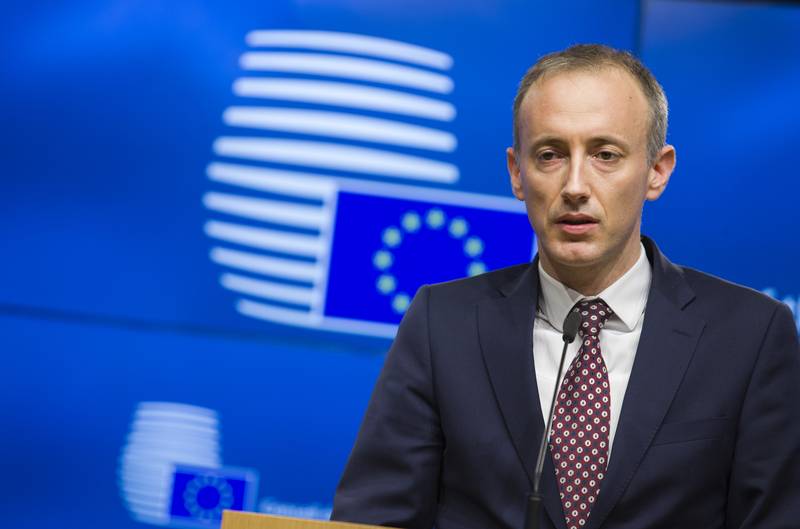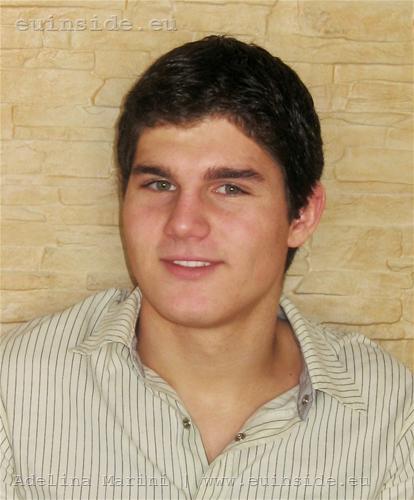The Finnish model: The educated society is the most precious asset of a nation
Az Buki newspaper, July 25, 2011
 In euinside we have commented before, on the occasion of Iceland for instance, that the more severe nature is in a country, the less goods people can get with no efforts, the more this mobilises society to develop its potential at the maximum. The same can be said for Finland, which might not have big population but invests a lot in every citizen. And obviously it benefits from this. We are publishing herewith an interview with Finland's ambassador in Bulgaria H.E. Tarja Laitiainen, taken by the Az Buki newspaper, because we think that solving the problems of Bulgaria's education is of strategic significance and must be a national priority.
In euinside we have commented before, on the occasion of Iceland for instance, that the more severe nature is in a country, the less goods people can get with no efforts, the more this mobilises society to develop its potential at the maximum. The same can be said for Finland, which might not have big population but invests a lot in every citizen. And obviously it benefits from this. We are publishing herewith an interview with Finland's ambassador in Bulgaria H.E. Tarja Laitiainen, taken by the Az Buki newspaper, because we think that solving the problems of Bulgaria's education is of strategic significance and must be a national priority.
Az Buki: According to the statistics Finland is a champion in the EU in terms of education. How have you achieved such a high level?
Tarja Laitiainen: Finnish educational system's strength is based on providing equal possibilities for every citizen, no matter their social status. The mandatory education also includes lunch and free books and materials for the pupils. We think that the educated society is the most precious asset a country can have.
A great significance is devoted to pupils with special needs, who experience difficulties at school. These kids receive additional care.
Finland is regularly among the first in the PISA classification (International programme for educational skills assessment). The key to this success is hidden in the high educational level of teachers and their devotion. Teachers try to build natural, warm relations with the pupils and their parents.
A specific feature of Finland's educational system is life long learning. Various forms of training are offered to adults who work. There are training courses for qualification that direct people to another area of professional development.
Special attention is paid to foreign languages. There are programmes for exchange of students with other countries, even in the primary school. In the higher grades many pupils spend a year abroad under such a programme, before they continue their education.
Finnish educational system is still funded entirely by public funds. Even the high education is practically for free. Thus social equality is encouraged, one of the major priorities of our society.
Another, more or less curious fact, is the high share of educated women. Since the 1980s they form the majority of high education graduates and the trend is their number to grow.
Az Buki: What part of the experience and practices in you country in the area of education can be applied in Bulgaria?
Tarja Laitiainen: Pre-school education starts from the age of 6. It is voluntary but there are almost no children to refuse it. Children start going to school at the age of 7. The tempo in the first year is not stressful. The idea is kids to learn how to entertain themselves at school, to get acquainted with this new universe that unfolds before them, when they can already read and write.
We very much value the principle of equality in the educational system. Every member of our society must have equal opportunities to get not only basic but higher education too.We live in a complex world, people with less skills and lower level of education are at risk from dropping off active life. If part of the population remains outside school, this would deprive the nation from its potential.
Finnish universities offer more than 450 programmes in English, with which they encourage the exchange of students programmes from all over the world. In order to guarantee high level candidate students must successfully pass the entry exams. From a practical point of view, however, the application procedure is simplified. People can apply via the internet.
An innovation in approach was applied for the first time several years ago when, despite the resistance of the affected parties, three universities united: a technical - that prepares engineers and technical experts, economic - with a focus on business management and the university for arts and design.
Az Buki: What is Finland's policy in the area of science and innovation?
Tarja Laitiainen: Finland has for many years been a world leader in terms of public funding for research programmes. An important task of the policy for development of science and technology is to ensure a balance and to increase cooperation in the area of innovation. Tekes - the Finnish agency that finances technology and innovation is the most important expert organisation. It is funded by the state and its main task is to allocate funds for research and development in Finland. Sitra - the Finnish Fund for Innovation is another key player in this area. It is unique in Europe and its activity is a subject of huge international interest. Sitra's purpose is Finland is to be a pioneer in sustainable development.
Az Buki: Finland is a good example how technologies can be applied in people's lives.
Tarja Laitiainen: Finland is one of the vast countries in Europe, in terms of territory - more than 390 000 sq.km. But it is also one of the most rarely populated. Several consequent governments are implementing a policy of settling and no matter how far they live people have equal access to public services. Which is why we have invented various ways of providing them.
I can give you the example of travelling libraries that travel on certain routes through a certain period of time. You can order a book via the internet and the bus will deliver it to you. Another example is medical service. A doctor moves throughout the archipelago by boat and reaches islands, inhabited by only several elderly couples.
*The interview has been provided to euinside by Az Buki. The text is abridged
 Krasimir Valchev | © Council of the EU
Krasimir Valchev | © Council of the EU | © euinside
| © euinside | © EU
| © EU